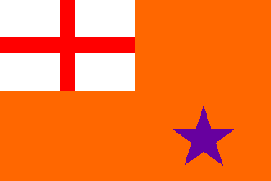Tuesday, July 12, 2005
Out of respect

Those who have been regular visitors to United Irelander over the last few months will be aware that the Orange Order are not an organisation that I'm very fond of. With that being said, this is the 12th of July and this is their day and rather than bemoan that fact or seek to trample all over it, I thought I would acknowledge the influence the Orange Order have had on the world which, admittedly, is very impressive. So without further ado:
- The Orange Institution spread throughout the English speaking world and further abroad. There are entirely black lodges in Africa and a Mohawk lodge in Canada amongst others.
- The Orange Institution can claim many historical figures amongst its ranks. Orangeman Alexander James Muir (Ontario LOL 142) wrote both the music and lyrics to the former Canadian National Anthem "The Maple Leaf Forever" in 1867. He was also a soldier in the Queen's Own Rifles of Toronto and was involved in fighting and defeating the Fenians at Ridgeway, Ontario in 1866. An obelisk there marks the spot where Orangemen died in defending the colony against an attack by members of Clan na Gael (commonly known as Fenians).
- Orangemen fought with General Isaac Brock at the Battle of Queenston Heights in the War of 1812.
- Lieutenant-Colonel Ogle R.Gowan commanded the Queen's Royal Borderers. He was wounded at the Battle of Windmill, near Prescott, Ontario, in 1838 while Canadians were defending themselves from an attack from the United States.
- Orangemen played a big part in suppressing the Upper Canada rebellion of William Lyon Mackenzie in 1837. Though the rebellion was but a skirmish and short-lived, nevertheless, 317 Orangemen were sworn in to the local militia by the Mayor of Toronto and then resisted Mackenzie's march down Yonge Street in 1837. Orangemen in western Canada helped suppress the rebellions of Louis Riel in 1870 and 1885.
- The best-known Orangeman of the Boer War was probably Sir James Craig, later the first Prime Minister of Northern Ireland. Craig, who often declared that he was an Orangeman first and Unionist second, served with 'distinction' in South Africa. He served with the Royal Irish Rifles, and also the Imperial Yeomanry, and it was while fighting with the latter that he endeared himself to this comrades. The Irish Squadrons of the Imperial Yeomanry were badly mauled at a place called Lindley in the Orange Free State by a large force of Boer Commandos led by Piet De Wet. When the war was over, Craig presented a flag captured from the Boers to an Orange lodge in County Down. He often expressed admiration for his Boer opponents and like many Ulstermen admired the Boers for their Calvinist religion and their courage and fairness in battle. James Craig (Lord Craigavon) as NI Prime Minister, at Stormont is quoted as stating on April 24 1934 - "I have always said that I am an Orangeman first and a politician and a member of this Parliament afterwards - They still boast of Southern Ireland being a Catholic State. All I boast of is that we are a Protestant Parliament and a Protestant State".
- Bro. William Ferguson Massey a native of Limavady who went on to be Prime Minister of New Zealand between 1912-1925 was a member of L.O.L. No.10 Auckland, New Zealand.
- Orangemen fought in the Crimean War, Indian Mutiny and other conflicts.
- On one occasion when men of the Royal Irish Fusiliers were granted an audience with the Pope, several Orangemen in the regiment wore their sashes under their army uniforms, rather than display them overtly and risk causing offence.
- Orangemen fought in both World Wars. The most famous battle in the folklore of the Order is the Battle of the Somme which began on 1st July 1916. Many Orangemen had joined the 36th Ulster Division which had been formed from various Ulster regiments and had also amalgamated Lord Edward Carson's Ulster Volunteer Force (who were formed to oppose Home Rule for Ireland) into its ranks. But for the outbreak of World War I, Ireland had been on the brink of civil war, as Orangemen had helped to smuggle thousands of rifles from Imperial Germany. Several hundred Glasgow Orangemen crossed to Belfast in September, 1914, to join the 36th (Ulster) Division. Roughly 5000 members of the 36th Ulster Division died on the first day of the battle.
Clearly the Orange influence overseas has been significant. To those of the Orange tradition on my own island, out of respect, I wish them a pleasant day and hope they enjoy the day's experience in a peaceful and mature fashion and that likewise they are treated in a peaceful and mature fashion by nationalist residents. Let's not see any violence from any side.
© 2008 United Irelander.

